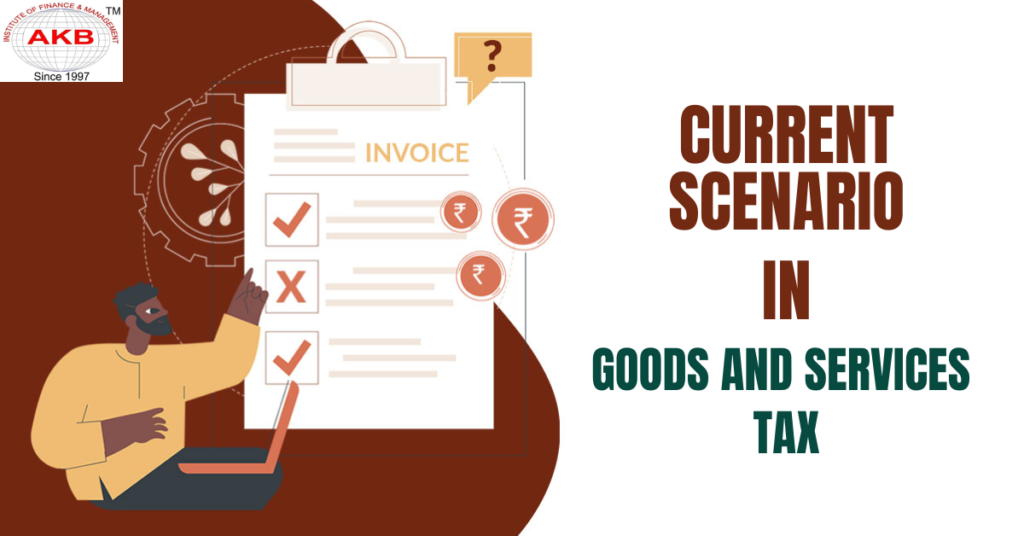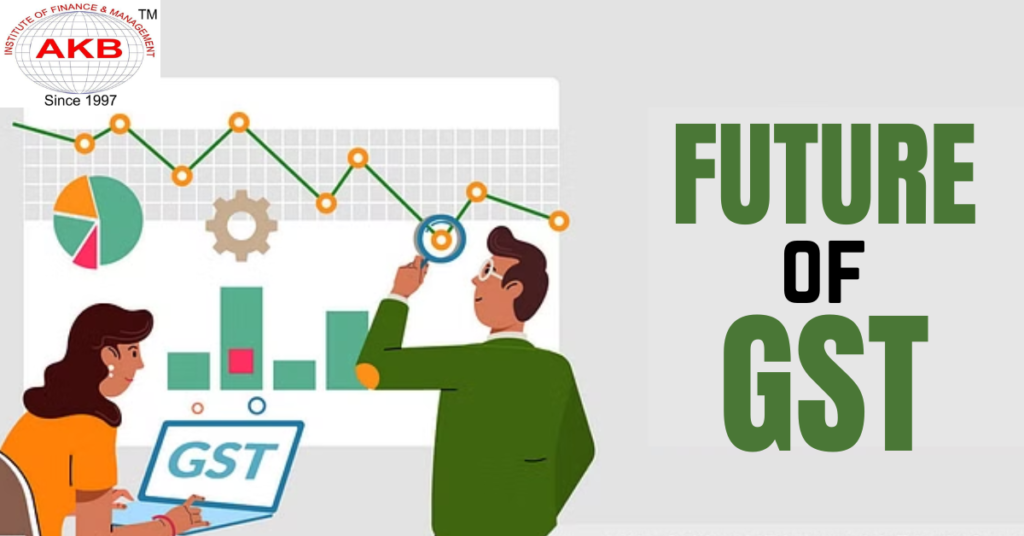Goods and Services Tax (GST) is part of India’s most significant tax reforms aimed at simplifying the indirect tax system and streamlining the tax administration. Since its implementation in July 2017, GST has been a topic of discussion and has attracted attention from various quarters – business, government, economists, and the general public. In this article, we will discuss the current scenario of GST in India and explore the future of GST in India.
Current Scenario Of GST In India

GST has been a game-changer for the Indian economy. It has brought a new era of tax administration, which is transparent, efficient, and taxpayer-friendly. The GST system has helped reduce the cascading effect of taxes, which was one of the major hurdles in the smooth functioning of businesses. The introduction of GST has also helped reduce businesses’ compliance burden as they have to file only one return every month instead of multiple returns to various tax authorities.
However, since its implementation, the GST system has faced its share of challenges. The most significant challenge faced by the GST system is the low compliance rate. Despite the government’s increasing compliance rate, many taxpayers are still not registering under the GST system. This has resulted in a significant loss of revenue for the government and has also affected the GST compensation to the states.
Another challenge the GST system faces is the mismatch of input tax credits (ITC) claimed by taxpayers. The mismatch of ITC claimed by taxpayers has resulted in tax evasion and increased the compliance burden on taxpayers.
To overcome these challenges, the government has taken various steps. The government has introduced the e-way bill system, which has helped track the movement of goods and reduced the compliance burden on the taxpayers. The government has also introduced various measures to increase the compliance rate, such as the GST council, which has helped address the issues faced by taxpayers.
Future Of GST In India

The future of GST in India looks promising. The GST system is expected to become more robust and efficient with the implementation of various measures. The government has also taken various steps to address the challenges faced by the GST system, and in the coming years, we can expect the GST system to become more taxpayer-friendly.
1. Increase In Compliance Rate
One major challenge the GST system faces is the low compliance rate. The government has taken various steps to address this challenge, such as introducing the GST council and the e-way bill system. In the future, we can expect the compliance rate to increase as more and more taxpayers become aware of the benefits of registering under the GST system. The government is also expected to take further measures to increase the compliance rate, such as introducing the GST return filing system.
2. Simplification Of GST Returns
The GST return filing system has been a major challenge for taxpayers since the implementation of GST. The current system of GST returns complex and time-consuming, which has resulted in a low compliance rate. The government has taken various steps to address this challenge, such as introducing the GST council and the e-way bill system. In the future, we can expect the GST return filing system to become simpler and more efficient, reducing the compliance burden on taxpayers.
3. Integration With Digital Platforms
In recent years, digital platforms have become an integral part of our lives. The GST system is expected to become more integrated with Digital Platforms, making it easier for taxpayers to comply with tax regulations. The government is expected to introduce more digital tools to simplify the GST return filing process, making it easier and more convenient for taxpayers. This will also help reduce the compliance burden on taxpayers and increase the accuracy of tax returns.
4. Introduction Of GST On E-Commerce
E-commerce is one of the rapidly-growing industries in India. However, the current GST system does not fully cover e-commerce transactions, which has resulted in a significant amount of tax evasion. In the future, the government is expected to introduce GST on e-commerce transactions, which will help in increasing the compliance rate and reduce tax evasion.
5. Increase In GST Revenue
The implementation of GST has resulted in an increase in tax revenue for the government. However, the low compliance rate and the mismatch of input tax credits claimed by taxpayers have occurred in a significant loss of revenue for the government. In the future, we can expect the GST revenue to increase as more and more taxpayers register under the GST system and comply with the tax regulations. The government is also expected to take further measures to increase the GST revenue, such as raising the tax base and reducing tax evasion.
6. Improved GST Compensation To States
One of the objectives of the GST was to ensure the smooth functioning of businesses and provide compensation to the states for any loss of revenue. However, the low compliance rate and the mismatch of input tax credits claimed by taxpayers have occurred in a significant loss of revenue for the government and the states. In the future, we can expect the GST compensation to the states to improve as the compliance rate increases and the mismatch of the input tax credit is reduced.
Conclusion
Staying ahead of the curve in the GST system is essential for businesses and individuals who want to ensure compliance and avoid penalties. With the ever-evolving nature of GST in India, taking a GST training course has become more critical than ever. AKBIFM offers a range of online GST training courses designed to help you stay up-to-date with the latest changes and developments in the GST system. Our courses are taught by expert instructors with years of experience in the field and are dedicated to helping you succeed. Whether you are a student, apprentice, or an experienced professional, AKBIFM’s online GST training courses are the perfect way to improve your knowledge and skills in this critical area. So, invest in your future and enroll in an AKBIFM GST training course today!



